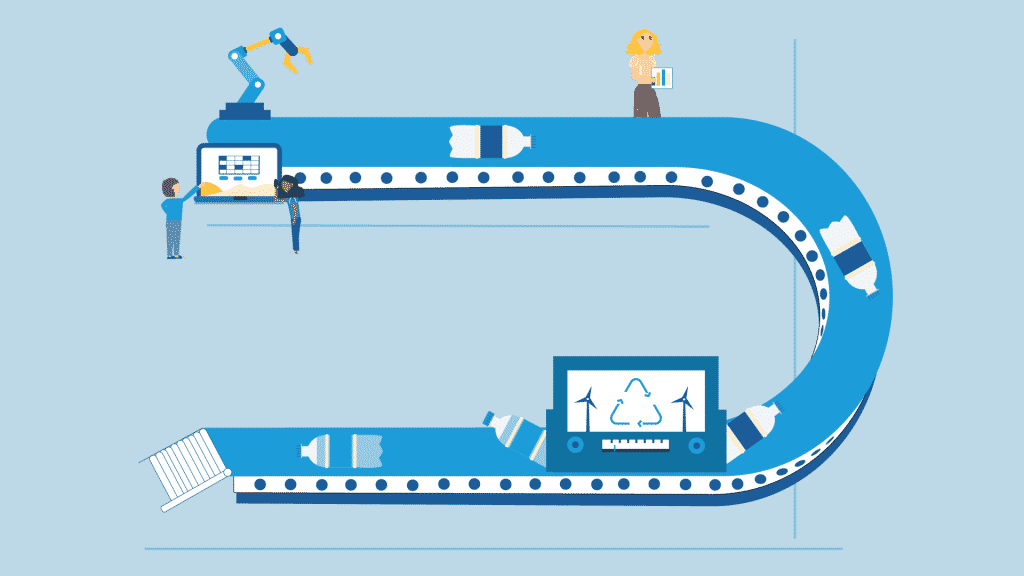Share Post:

Within the EU environmental acquis, waste-management is one of the most demanding sectors in terms of the resources – both human and financial – needed for the adaptation of the relevant EU legislation and implementation of this new circular agenda. Previous enlargements have shown how difficult the waste-management sector is, and this is again showing during the accession process of the Southeast European six. For that reason, the European Commission funded the ”Comprehensive assessment of the current waste management situation in Southeast Europe and future perspectives for the sector including option for regional cooperation in recycling of electronic and electronic waste”[1]. Within the study of the National Waste Assessments, the researchers have highlighted the following issues[2]:
- Poorly defined roles and responsibilities at various levels of government;
- Weak enforcement of laws;
- Prevalence of illegal dumping and continued use of substandard landfills;
- Low levels of fee collection and reluctance to increase fees;
- Existing policy measures are unlikely to drive materials up to the waste hierarchy;
- Ineffective approach to procuring/funding widespread service changes;
- Waste collection infrastructure is unlikely to deliver EU recycling standards;
- Poor quality of waste data;
- Gaps in application of extended producer responsibility;
- Limited administrative and technical capacity.
Do you want to join the discussion?
Click the button below and share your thoughts by joining the platform!
Political agenda and legal framework
Challenge | Solutions | Actors | Implementation |
· Weak legislative enforcement (or even legislative overlap) leads to illegal dumping and susbstandard landfills | · Introduction of best practice mechanisms from EU member states | · National governments · Relevant ministries · European Union · Waste-management companies · Municipalities | · Working group on trans-sectoral level (relevant ministries, municipalities and companies) that would receive a direct insight into best practices (mechanisms) for legislative enforcement (e.g. Sweden). |
· Low landfill fees (no incentive to recycle) | · Taxation of waste disposal | · National governments · Relevant ministries · European Union · Waste-management companies · Municipalities | · Implementation of appropriate taxation system in order to stimulate (or monetise) the opportunities of recycling |
· Permits for recycling plants are very difficult to obtain (authorities are not supportive) | · Pre-authorisation of recycling plants so that it is easier for operators to get permission · Rewriting of procedures that would allow an easier obtaining of permits for recycling plants | · National governments · Relevant ministries · European Union · Waste-management companies · Municipalities | · Implementation of appropriate legislation that allows such pre-authorisations and de-bureaucratisation of procedures in obtaining needed permits. |
· Authorities are not asking for recycled material when tendering construction projects | · Adopting a minimum amount of recycled materials required for construction projects | · Municipalities · National governments · Relevant ministries | · Implementation of new tendering standards for ”greening” construction projects |
· Insufficient policies (lack of strategies) | · Adoption of appropriate framework based on the Circular economy principles | · National governments · Relevant ministries · EU | · Implementation of overarching framework for waste-management strategies based on the Circular economy principles in the SEE that is financed by the EU |
· Lack of adequate infrastructure for waste treatment | · Adopting national investment plan on waste-management infrastructure | · National governments · Relevant ministries · EU · Municipalities | · Preparing a comprehensive investment plan for waste-management infrastructure that would be co-financed by the EU research and innovation programmes |
· Lack of proper pricing of recycling schemes | · Implementation of Pay as you throw (PAYT) principle and re-invest the gathered money to the waste-management infrastructure | · National governments · Relevant ministries · Municipalities · Waste-management companies | · Prepare national plan for implementation of PAYT with an aim of re-investing the financial resources into the waste-management infrastructure |
Technology and market
Challenge | Solutions | Actors | Implementation |
· Limited sources of applicable technologies in different sectors | · Establishment of regional network of waste- management operators that would facilitate knowledge exchange | · Municipalities · Waste-management companies | · Transnational working group of waste-management operators and municipalities (HUBs) that would form a platform where different types of exchanges would occur. |
· Question of profitability (Return on Investment) | · Tax incentives for investments in sustainable technology | · National governments · Relevant ministries · Waste-management companies · European Union | · Implementation of tax incentives (stimulative business environment) for investments in sustainable technology |
· Perception of circular waste-management of not being a business opportunity | · Stimulation of educational and vocational HUBs as platform for education and know-how development | · National governments · Relevant ministries · Municipalities · Waste-management companies · Educational centres · European Union | · Finance regional HUBs (educational and vocational platform) in order to shift the paradigm of understanding the waste-management as vibrant business opportunity |
· Low level of private and public partnerships | · Stimulation of public-private partnerships via tax incentives | · National governments · Relevant ministries · Municipalities · Waste-management companies | · Stimulate public-private parterships with tax incentives and EU-funded projects in the field of waste-management |
· Profits over quality and durability of the products | · Implementing national and EU schemes for longer lasting products | · National governments · Relevant ministries · Waste-management companies · European Union | · Designining appropriate financial incentives for longer lasting products on both national and EU level |
Stay Connected
More Updates

Energy
The energy sector in Southeast Europe faces a unique dual transition, a challenge without any precedent in the field of energy: transition from a centralised state-controlled system to open and competitive markets, and transition towards decarbonisation.

Plastics
ver the past 50 years, the role and importance of plastics in our economy has consistently grown. In the EU, the potential for recycling plastic waste remains largely unexploited. Reuse and recycling of end-of-use plastics remains very low, particularly in comparison with other materials such as paper, glass or metals.


